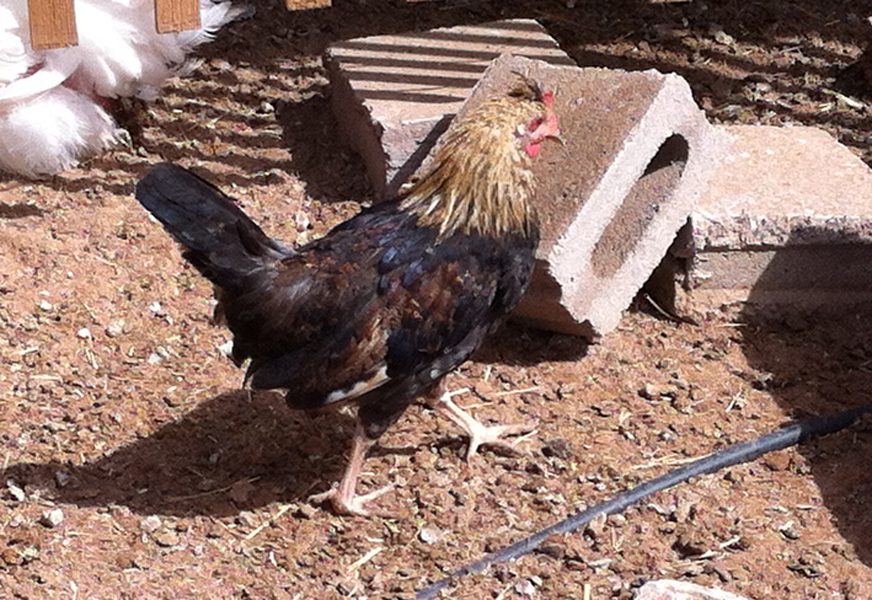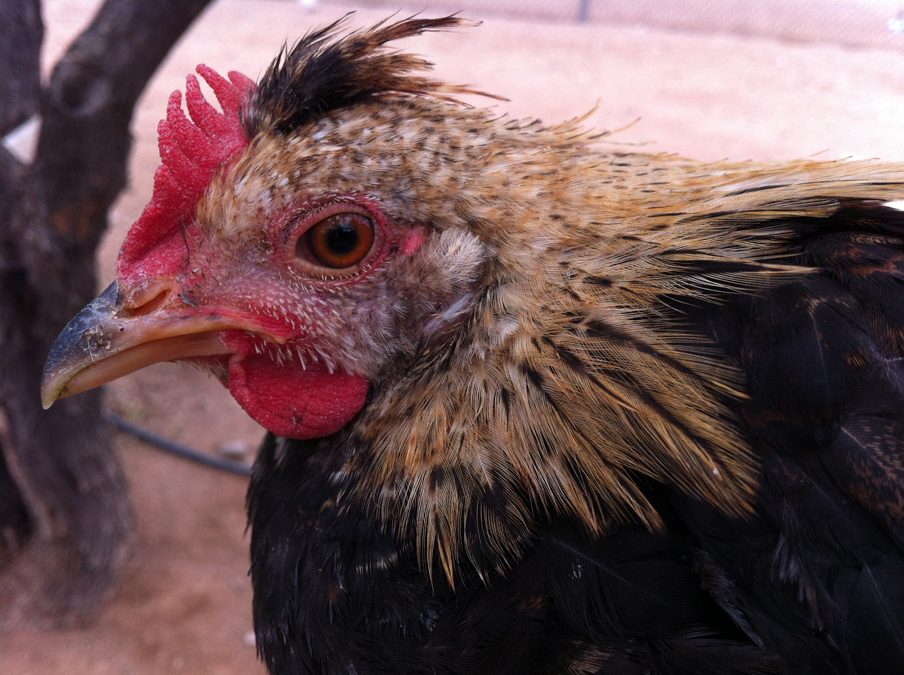As a relative new-comer to this group, I have to say I'm a little taken aback - shocked and dismayed really - by the less-than-respectful tone that's been used to communicate the urgency felt in protecting the genetic purity of Icelandic chickens. As an Icelandic chicken preservationist, I too feel that urgency and will certainly do my part to secure the purity of my stock, but I do think it's at least as important that we respect "the good people of the flock" (one another) as human beings with feelings while respecting the need to safeguard our Icelandic stock.
Personally, when I made the decision to acquire a stock of Icelandics I did so with the understanding that I would be participating in a preservationist effort. I happily undertook that responsibility, knowing full well what it meant. Now that I've had my Icelandics for a brief couple of months, already my interest and fervor for preserving these unique chickens has but grown. They truly are like no other chicken I've ever raised, in all the best ways. And I would hope that all Icelandic preservationists can agree that while preservation of genetic purity is an absolute, the spirit and work of preservation extends beyond stock purity to also include preserving the integrity of the available genetic stock. Even more so, with such a limited gene pool as we have to work with here in the U.S., that becomes a critical issue. So while we individually may rush to flog anyone who dares to threaten the sanctity of keeping Icelandic chickens pure, we should likewise be actively coordinating as a group to broaden the scope of the gene pool and strategizing about how to minimize known genetic defects that have appeared (e.g. fray feathering) and may yet appear. Have I missed those discussions? If not, then I'm happy and eager to inaugurate one.
In the interest of establishing as diverse a genetic stock for myself as possible, I acquired a couple of cockerels from Icelander. If I'm not mistaken, Icelander's stock came from a recent importation of hatching eggs directly from Iceland, sourced from one of the leaders of the preservationist movement back in the homeland (Icelander, do you care to say more about that?). I'm excited to breed those roosters to the hens I have that came from Sheriff's stock which will serve to inject fresh genetics into and broaden the genetic scope of already-established U.S. lines. How lucky are we that people continue to import fresh genes and then choose to share them! Thank you for your generosity, Icelander!!
As to the already apparent fray-feathering issue that has expressed in Sheriff's lines (I say this not from accusation or supposition but from first-hand knowledge, as the photo I posted yesterday demonstrates -- I have a fray-feathered hen that originated from Sheriff's lines), I will not be including that hen's genes in any hatchings. I also euthanized a chick I got from Sheriff that exhibited a feathering/growth deformity (refer to the pics I posted of it on this thread a few wks back). Sheriff, to her credit, has been very forthcoming about this genetic issue in her stock and has actively worked to eliminate it from her lines. There is apparently work yet to be done in that regard. I challenge and encourage our fellow preservationists to join with Sheriff and myself in prioritizing the eradication of fray-feathering and any other genetic anomalies that may arise as a result of working with such a restricted gene pool as we have.
I'm definitely appreciative to have this group of whole-hearted Icelandic chicken enthusiasts to collaborate with, and I'm certainly happy to have Icelandic chickens on my homestead. Here's to a positive, supportive, respectful future for the Icelandics, and us! … Ig Vigé
Thank you for this post Ig; , I was a bit upset about the response I got from my post.
I have done due diligence in trying to help preserve this breed. I have eliminated all other cock birds from my flock, prior to getting the Icelandics. Plus, there are no other poultry breeders within miles of us.
We do have some other white (well, very pale cream) egg layers around here, but they are ducks, and apart from the size of the egg, (which I can determine quite well is NOT an Icee egg) their different hatch dates would alert me, (the Harlequins take 28 days, and the Muscovies take 35) not to mention the fact that I think that I can tell a duckling from a chicken at least nine times out of ten. So, small, white eggs, MUST be Icelandic eggs.
Now, Jake says he has a background in genetics, and I have no reason to disbelieve him. I too have some fair knowledge, having worked for many years with some of the country's top scientists at Amgen, and know about scientific method and research.
Breeding birds and "studying" them is only a SMALL PART of understanding any species. I would venture to guess that only a very small fraction of those "Preserving" the Icelandic have any particular knowledge of research in this area, and even fewer of them have the money, time or resources to do it correctly, and with any scientific accuracy.
Having said that, I applaud ALL efforts to preserve this wonderful breed and will continue to do my part.
Edited: In reflection, I think I have been too close to the forest and have missed some trees. While my "theory" was correct, I had not calculated the human factor.
It occurs to me, that what so many people have been telling me, is that there are some very unscrupulous people out there, who could do the breed a lot of harm by out-crossing, and selling the offspring as purebred.
This did not occur to me, since it's certainly not something I would do, nor would think others would do it. But they do. There are many "bad" people, who would try and sell a "mutt", claiming it as purebred, simply for the sake of "MONEY".
So, I would encourage all those who come to this thread, to take heed - do as Mary, the Sheriff, Jake, the Other Mary, and many other have said. Keep the breed pure. Buy from "TRUSTED" sources. DON'T out cross for any reason. If you feel you may have bought a "non purebred bird", don't include it n your breeding program. In this way, we can be sure that this gorgeous landrace will remain pure for years to come, and we will feel good about our own contribution to it's continuation.
Last edited:









